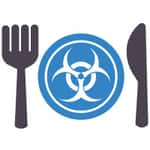
Food Technology Course Details - Fees, Subjects, Syllabus, Duration, Eligibility, Career Scope
Degrees offered: M.Sc., B.E /B.Tech, B.Sc., Ph.D, B.Sc.(Hons)
What is Food Technology
Food Technology is a branch of science focused on the methods and techniques used in producing food, both organic and inorganic. The course includes essential aspects like food preservation, processing, quality control, packaging, labelling, and distribution, making it a vital and fast-growing field in modern science and technology.
Food Technology courses provide a comprehensive study in areas such as food chemistry, microbiology, food processing, and quality management. These programmes are offered in various formats, including Diploma, B.Sc, B.Tech, M.Sc, M.Tech, and even PhD levels, with nearly 100 colleges in India offering them at undergraduate, diploma and postgraduate levels.
Graduates in Food Technology can secure rewarding careers in sectors like food manufacturing, hospitality, and catering. Popular roles include food scientist, quality assurance manager, and food safety officer. Top recruiters such as Amul, Nestlé, ITC, and PepsiCo offer attractive opportunities in product development, safety management, and food innovation.
Food Technology Course Highlights
Food Technology is a dynamic field that blends science with food production and safety. Students can pursue it through B.Tech, M.Tech, B.Sc, M.Sc, or diploma programmes. Admissions are mostly entrance-based, and graduates find roles in quality control, research, and food safety. Here are the key highlights of the course.
| Particulars | Values |
|---|---|
Branch Name | Food Technology |
Degree | |
Eligibility Criteria | UG: 10+2 in Science stream |
Admission Process | Entrance Based |
Entrance Exam | JEE Main, JEE Advanced, WBJEE, BITSAT, SRMJEEE, CUET UG, GATE |
Course Fees | Rs. 60,000 to 10 Lakhs per year |
Job Profiles | Food Scientists, Quality Assurance Managers, Product Development Specialists, and Food Safety Officers |
Average Salary | Rs. 6.5 LPA |
Recruiting Companies | Amul, ITC Limited, Britannia Industries, Parle Products, Hindustan Unilever, Nestlé India, Dabur, PepsiCo India, Cadbury India Limited, Gits food products private Limited, Parle Products Private Limited, Mondelez India and Godrej Agrovet |
Specialisation or Similar Ones
There are many similar courses and specialisations in Food Technology available. Those similar specialisations can provide similar types of career prospects after completing the degree. Students can pursue specialisations in the agriculture sector, bakery, alcohol, cereals, vegetables and fruits, dairy, probiotic supplements, waste management, and other areas. Some of the specialisations in Food Technology are as follows:
B.Tech Food Science, Technology, and Processing | B.Tech Food and Sugar Technology |
Top Private Food Technology Colleges in India
Around 60 private colleges in India offer Food Technology courses, known for their advanced infrastructure, expert faculty, and industry-relevant curriculum. These institutions provide in-depth academic and practical training, ensuring strong career prospects for students. Listed below are some of the top private Food Technology colleges in the country.
| Top Colleges | Fees |
|---|---|
Rs. 4.60 Lakhs | |
Rs. 16.67 Lakhs | |
Rs. 3.40 Lakhs | |
Rs. 6 Lakhs | |
Rs. 6.97 Lakhs | |
Rs. 6 Lakhs | |
Rs. 2.65 Lakhs | |
Rs. 7.60 Lakhs | |
Rs. 3.36 Lakhs | |
University Institute of Engineering, Chandigarh University, Chandigarh | Rs. 6.48 Lakhs |
Note: The fee structure provided above can be for any particular Food Technology course (Diploma/ Degree/PGD).
Top Government Food Technology Colleges in India
Numerous government colleges in India offer Food Technology courses. These colleges and universities provide similar facilities at a minimal cost. These colleges also provide a blend of theoretical as well as practical skills to the candidates. Below is a list of India's top government colleges.
| Top Colleges | Fees |
|---|---|
Rs. 3.14 Lakhs | |
Rs. 53,150 | |
Rs. 3.20 Lakhs | |
Rs. 17,400 | |
Rs. 1.28 Lakhs | |
Rs. 7 Lakhs | |
Rs. 5.12 Lakhs | |
Rs. 88,800 | |
Rs. 6,150 | |
Rs. 96,800 |
Eligibility Criteria (UG & PG) of Food Technology
There are certain entrance requirements that candidates need to follow to get admission to food technology courses. The eligibility criteria vary according to the different levels of education. Below is the list of certain requirements that candidates need to take care of to start their application process.
Eligibility Criteria for UG Courses
Candidates who are interested in pursuing food technology right after their 10+2 have several colleges and universities to choose from. Below are a few important points to remember for eligibility.
- Candidates must complete his or her 10+2 with Physics, Chemistry, Maths, or Biology as main subjects from a well-recognised Indian board.
- They also need to appear for the entrance examination.
Top Entrance Exams for UG Courses
There are certain entrance exams that candidates need to qualify for to be eligible for admission in food technology. Below is the list of some important entrance exams that candidates need to appear for to get admission to undergraduate courses in food technology.
| Exam Name | Level | Conducting Body | Exam Schedule |
|---|---|---|---|
National | NTA | ||
National | IIT Bombay | ||
National | NTA | ||
National | NTA | ||
State | State Common Entrance Test Cell - Maharashtra State | - | |
University | BITS | ||
University | SRM University | ||
State | West Bengal Joint Entrance Examinations Board |
Eligibility Criteria for PG Courses
Individuals who are interested in pursuing their education in food technology can apply for the same in several colleges and institutions. Given below are some of the points to note for PG eligibility.
- Candidates need to complete their graduation from a recognised university in Food Technology or a related field.
- Candidates must also fulfil the college/university graduation percentile criteria.
- They also need to appear for the entrance examination.
Top Entrance Exams for PG Courses
Similarly, for postgraduate courses, candidates are required to qualify for certain entrance exams. Below is the list of some important entrance exams that candidates need to take for admission to postgraduate courses.
| Exam Name | Level | Conducting Body | Exam Schedule |
|---|---|---|---|
National | IITs | ||
National | NTA | ||
State | Karnataka Examinations Authority | - | |
State | Sri Venkateswara University, Tirupati | - |
College Predictors VIEW ALL
Scope of Food Technology in India and Abroad
Food technology has a broader scope in today's world. A person with a decent understanding of the fundamentals of food manufacturing can apply for jobs in dairy and food production, food storage, frozen nutrition, and thermal processing. The sector offers numerous career opportunities in food processing, quality control, research and development, and food safety.
Similarly, abroad also the scope of food technology is much broader. There are plenty of job opportunities in large food companies, research centres, and government agencies. Professionals in this field work on new technologies like genetically modified foods, plant-based proteins, and eco-friendly packaging.
Course Fees Food Technology
| Minimum Fees | Maximum Fees | |||
|---|---|---|---|---|
| Private | Government | Private | Government | |
| UG | ||||
| PG | ||||
| DOCTORAL | ||||
| DIPLOMA | ||||
Course Subjects
The Food Technology syllabus is designed to provide students with a comprehensive understanding of food science, processing, safety, and nutrition. It combines theoretical knowledge with hands-on practical training for careers in the food industry and research. Below is the syllabus for both undergraduate and postgraduate Food Technology courses.
Food Technology Syllabus for UG Courses
The syllabus for UG courses in food technology includes subjects such as Principles of Food Processing, Biochemistry, Microbiology, Food Packaging Technology, and Heat and Mass Transfer. The coursework in food technology has eight semesters in four years. The syllabus for the B.Tech. in Food Technology programme offered by Maharashtra's Agricultural Universities is outlined below.
Semester 1 | Semester 2 |
Principles of Food Processing | Cereal Processing |
Postharvest Management of Fruits and Vegetables | Food Packaging Technology |
Engineering Drawing and Graphics | Heat and Mass Transfer |
Fluid Mechanics | Statistical Methods and Numerical Analysis |
Mathematics | Food Microbiology |
Environmental Science and Disaster Management | Human Nutrition |
Biochemistry | Food Chemistry of Macronutrients |
General Microbiology | Information and Communication Technology |
Computer Programming and Data Structures | - |
Semester 3 | Semester 4 |
Legumes and Oilseeds Technology | Wheat Milling and Baking Technology |
Meat, Poultry and Fish Technology | Fruits and Vegetables Processing |
Processing Technology of Beverages | Processing of Spices and Plantation Crops |
Processing of Milk and Milk Products | Operations in Food Processing – II |
Energy Generation and Conservation | Post-Harvest and Storage Engineering |
Unit Operations in Food Processing | Food Additives and Preservatives |
Food Chemistry and Micronutrients | Food Safety and Microbial Standards |
Industrial Microbiology | ICT Application in the Food Industry |
Semester 5 | Semester 6 |
Confectionery and Snacks Technology | Food Quality and Sensory Evaluation |
Food Extrusion Technology | Food Processing Equipment Design |
Biochemical Engineering | Food Plant Design and Layout |
Food Refrigeration and Cold Storage | Instrumentation and Process Control |
Instrumental Techniques in Food Analysis | Enzymes in the Food Industry |
Food Biotechnology | Food Plant Sanitation |
Entrepreneurship Development | Quality Assurance and Certification |
Business Management and Economics | Project Preparation and Management |
Food Laws and Regulations | Marketing Management and International Trade |
- | Communication Skills and Personality Development |
Semester 7 | Semester 8 |
Experiential Learning Programme – I | Implant Training |
Experiential Learning Programme – II | - |
Research Project | - |
Seminar | - |
Food Technology Syllabus for PG Courses
The syllabus for PG courses is overall divided into four semesters over two years. The syllabus of PG courses is very comprehensive and includes practical subjects as well. The syllabus for M.Tech Food Technology offered by Marathwada Krishi Vidyapeeth, Parbhani, is given below.
Semester 1 | Semester 2 |
Advances in Food Chemistry and Nutrition | Food Processing |
Modern Food Microbiology | Food Packaging |
Advances in Food Engineering | Food Quality Systems and Management |
Nutraceuticals and Health Foods | Beverages Technology |
Cold Chain Management | Grain Storage Technology |
Food Supply Chain Management | Computer Applications in Food Industry |
- | Technical Writing and Communications |
- | Intellectual Property and Its Management In Agriculture |
Semester 3 | Semester 4 |
Food Analysis | Research Work and Thesis |
Equipment Design and Process Control | – |
Business Management and International Trade | – |
Agricultural Research Ethics and Rural Development Programmes | – |
Disaster Management | – |
Careers in Food Technology
Food Technology plays a vital role in ensuring food quality, safety, and innovation through scientific processing and preservation methods. Professionals in this field are actively involved in developing new food products, improving nutritional value, enhancing shelf life, and complying with food safety regulations. With growing awareness around healthy eating and sustainable food systems, demand for skilled food technologists is increasing across industries.
Graduates in Food Technology can explore diverse roles such as Food Technologists, Quality Assurance Officers, Bacteriologists, Toxicologists, and Agricultural Inspectors. They find employment opportunities in food processing companies, research labs, quality control departments, government agencies, and agribusiness firms. With strong technical knowledge and practical training, they are well-prepared for rewarding careers in both the public and private sectors.
Upcoming trends
In recent times, the focus of food technologists has moved towards sustainable techniques and eco-friendly practices. Personalised nutrition is also becoming popular, using technology to create diets customised for individual needs. Food packaging is also improving to reduce waste and keep food fresh longer, with biodegradable and smart materials. Scientists are also trying to make dairy products without animals.
- Alternative Proteins
- Personalised Nutrition
- Clean Label Products
- Food Waste Reduction
- Functional Foods and Nutraceuticals
- Automation and Robotics
- 3D Food Printing
- Sustainable Packaging
- Gene-Edited Crops
- Food as Medicine
Job Profiles and Top Recruiters
Food Technology graduates find employment in reputable organisations like the Food Corporation of India, public distribution systems, and the Department of Food and Public Distribution under the Government of India. The field offers a wide range of career opportunities across various sectors. Here are some of the job roles:
| Job Roles | Description |
|---|---|
Bacteriologists | Bacteriologists study bacteria to understand their structure, behaviour, and impact on humans, animals, plants, and the environment. They contribute to food safety, public health, and the development of antibiotics and vaccines. |
Food Technologists research, develop, and improve food products and processing methods. They ensure food safety, quality, and compliance with regulatory standards across manufacturing and packaging. | |
Toxicologists examine the effects of chemicals and substances on living organisms to assess potential risks. They help ensure food, water, and environmental safety by conducting experiments and analysing exposure levels. | |
Dairy Technologists focus on processing, testing, and improving dairy products like milk, cheese, and yoghurt. They apply scientific methods to enhance quality, nutrition, and shelf life in dairy production. | |
Farm Managers oversee agricultural operations, including crop cultivation, livestock care, and resource management. They plan budgets, manage staff, and ensure efficient production and sustainability on farms. | |
Agricultural Inspectors monitor farming practices to ensure compliance with safety, health, and environmental regulations. They examine crops, livestock, and equipment to maintain quality standards and prevent contamination. |
Top Recruiters
- Nestle India Private Limited
- Dabur India Limited
- PepsiCo India
- MTR Foods Limited
- Agro Tech Foods
- Perfetti India
- Hindustan Unilever Limited
- Coca-Cola
- Amul
- Godrej Industrial Limited
Average Salary
There are a variety of career opportunities after pursuing a course in Food Technology. Candidates can find various job roles based on their educational qualifications and experience. The salary is also decent in these careers. Here, in this section, the salaries of some of the top career profiles that candidates can choose after doing food technology courses are given below.
| Job Roles | Average Salary (LPA) |
|---|---|
Bacteriologist | Rs. 2 LPA |
Food Technologist | Rs. 3.6 LPA |
Toxicologist | Rs. 5.8 LPA |
Dairy Technologist | Rs. 6.8 LPA |
Farm Manager | Rs. 6.6 LPA |
Agricultural Inspector | Rs. 3.8 LPA |
Source: AmbitionBox
Required Skillset for Food Technology
A deep interest in the field of health and science is a key to excelling as a food technology graduate. Additionally, students must possess core technical as well as soft skills to have a better understanding of the subjects. The following are the skills required for a food technology course. Here are some of the required skills:
- Food Chemistry Knowledge
- Microbiology and Hygiene Awareness
- Analytical and Research Skills
- Attention to Detail
- Quality Control and Assurance
- Technical Skills in Processing Equipment
- Problem-Solving Abilities
- Understanding of Food Safety Regulations
- Data Interpretation and Reporting
- Communication and Teamwork Skills
Course Curriculum for Food Technology
The Food Technology curriculum integrates scientific knowledge with practical applications to prepare students for careers in food processing, quality control, and product development. Learners gain expertise in chemistry, microbiology, nutrition, and industrial processing techniques essential for ensuring food safety and innovation. The course also includes hands-on laboratory training, internships, and elective modules. Core areas of study include:
- Food Chemistry and Biochemistry
- Food Microbiology and Hygiene
- Food Processing and Preservation
- Nutrition and Dietetics
- Dairy and Meat Technology
- Food Quality Control and Assurance
- Packaging Technology
- Food Laws and Regulations
- Sensory Evaluation of Food
- Research Methodology and Food Product Development
Popular Food Technology Entrance Exams in India
Frequently Asked Questions (FAQs)
Question: How many subjects are there in food technology?
Answer :
Biochemistry, food microbiology, nutritional measurement techniques, process engineering, food manufacturing technology, food marketing and invention, food chemistry, food and packaging engineering, food preservation, industrial testing techniques, and quality and reliability control are only a few of the topics covered by food technology students.
Question: Which is the best college for food technology?
Answer :
Some of the top colleges for food technology in India are IIT Kharagpur, Jadavpur University, NIT Rourkela and Chandigarh University.
Question: Is maths compulsory for food technology?
Answer :
No, maths is not needed for a career in food technology. To pursue a degree in food science, one must have completed 10+2 with biology or maths, as well as physics and chemistry.
Question: What is food technology and its scope?
Answer :
Food technology is a field of science that studies the methods used in the development, refining, preservation, packaging, marking, quality control, and delivery of food. Methodologies and procedures for transforming raw materials into food are also included in this area.
Question: Is food processing technology B.Tech a great course to take?
Answer :
The B.Tech. in Food Technology is a suitable course for students who want to learn about the theoretical principles of food science and technology. Food science is covered in depth in the B.Tech. in Food Technology.
Question: What is a food technology course?
Answer :
The Bachelor of Science in Food Technology is a four-year programme that combines chemistry, biology, and engineering to develop and process healthy, stable, palatable, and nutritious food to solve global food security issues.
Question: What are the career opportunities after pursuing a food technology course?
Answer :
There are several career opportunities after pursuing a food technology course. Those are Bacteriologists, Food Technologist, Toxicologist, Dairy Technologist, Farm Manager, Agricultural Inspector.
Question: What are the benefits of food technology?
Answer :
Food technology enables greater nutrient use in the supply chain from field to fork, reducing the amount of primary food processing needed. There are several stages in the food chain from production to consumption.




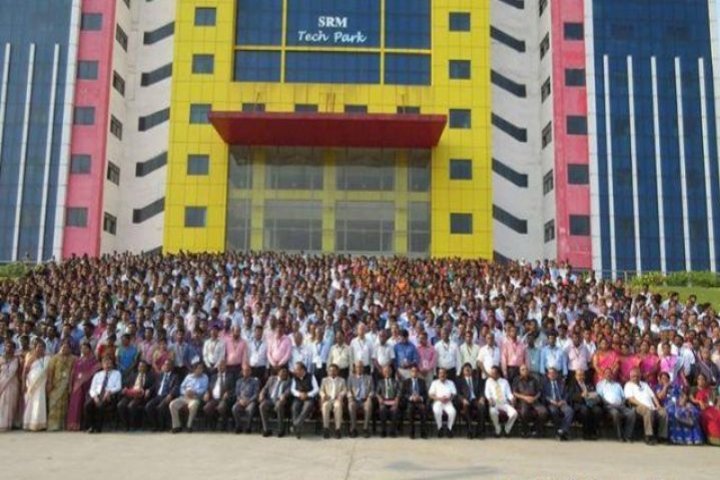
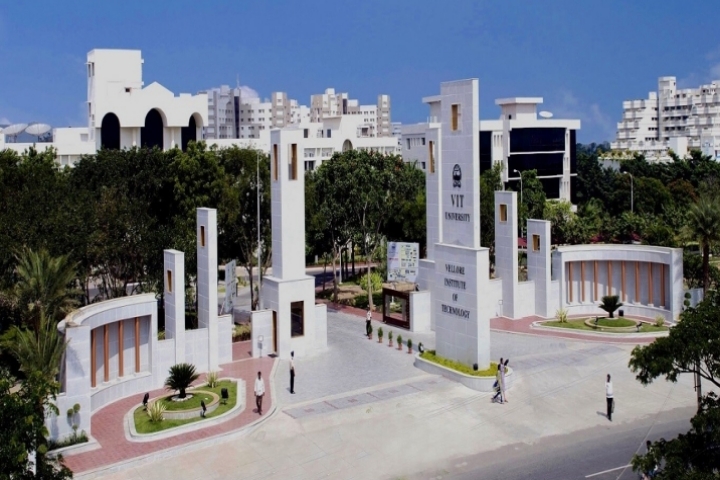
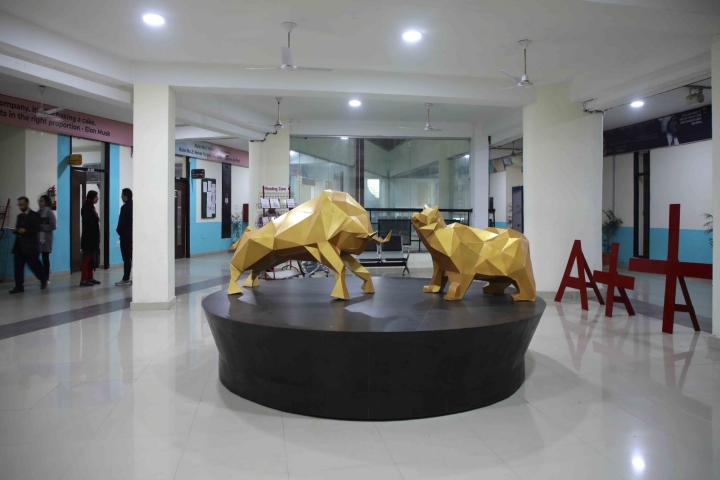
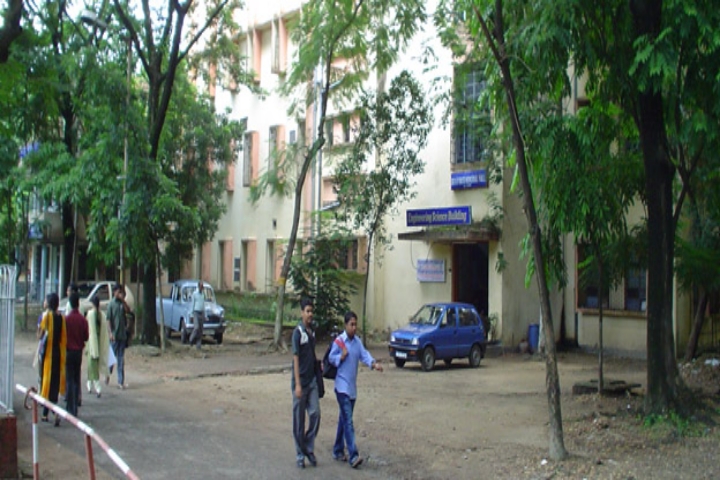
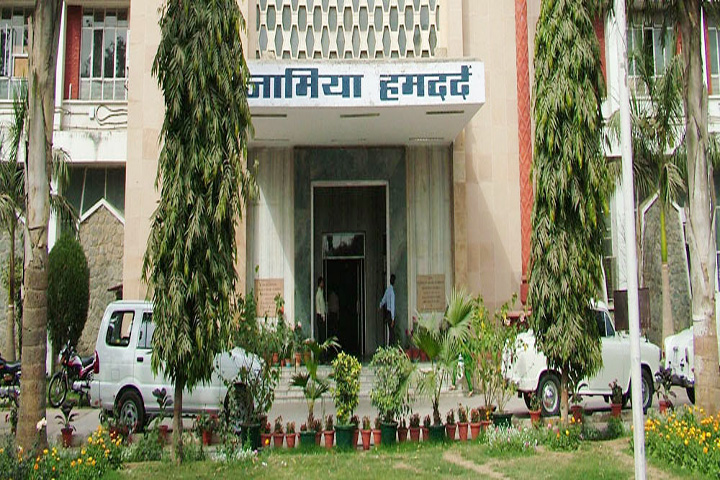
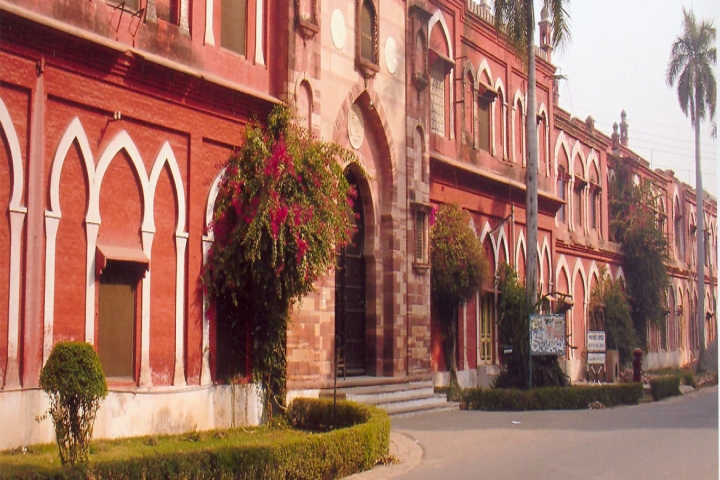
.jpg)
